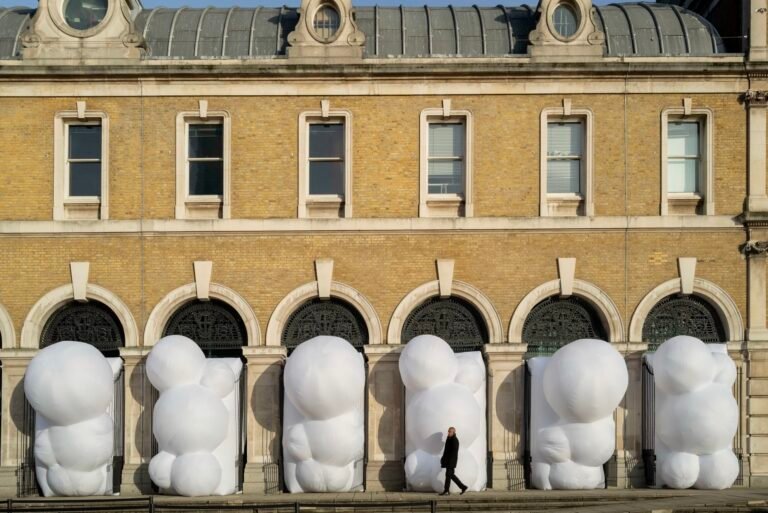Mariam Issoufou Kamara to design upcoming museum and cultural center in Senegal
In Wolof, a spoken language in Senegal, Bët-bi means “the eye.”
Starting in 2025, Bët-bi will also refer to a new museum and community center realized near the historic market town of Kaolack, Senegal, when it opens its doors.
Comprising exhibition spaces, community rooms, and a library, the almost 3,300-square-foot museum is envisioned as a cultural liaison between West African and international art institutions while remaining sensitive to local communities—a place to celebrate the culture of sub-Saharan Africa and facilitate global initiatives to return objects of West African origin. The Connecticut-based Josef and Anni Albers Foundation and Le Korsa, the affiliated nonprofit organizations that will be operating the museum, plan to tap the talent of local curators for contemporary and historic African art exhibitions. Bët-bi will also hold repatriated African objects from Western collections.
On May 10, the Josef and Anni Albers Foundation/Le Korsa announced that Mariam Issoufou Kamara, founding principal of award-winning Niger-based architecture and research practice atelier masōmī, has been selected to lead the design of Bët-bi. It was an unanimous decision made by a jury including the nonprofit’s close partners, along with design and curatorial professionals from around the world. The panel chose from an impressive shortlist of four entrants, all with offices in Africa. Shortlisted alongside atelier masōmī were Aziza Chaouni Projects (Toronto and Fez, Morocco), MASS Design Group (Boston, Kigali, Rwanda, and other locales), and the Addis Ababa, Ethiopia-based team of curator and anthropologist Meskerem Assegued and artist Elias Sime.

“It is a great honour and a privilege to be selected to lead the design of Bët-bi. For far too long our region has been a place where cultural wealth is pillaged to profit museum collections,” said Kamara in a press release. “This project is an opportunity to design a new type of space that is inspired by the roots and spiritual legacy of the region. It is a chance to push the boundaries of what defines a museum in the 21st century.”
Such sentiments echo the publicly-spirited values that lie at the very heart of the Nigerien architect’s practice. The mission statement of atelier masōmī, which Kamara founded in 2014 after studying architecture at the University of Washington in Seattle, declares that its work “investigates the power of design to elevate, give dignity and better people’s quality of life.” These efforts can be seen in several of the firm’s projects, including the Niamey Cultural Center. Located in the Nigerien capital (where the firm is also based) the building draws from local needs, culture and tradition in both its program and design. Kamara designed the cultural center under the mentorship of David Adjaye through the Rolex Mentor and Protégé Initiative, an international arts program that pairs the young up-and coming with the masters.
atelier masōmī employs a similar approach in its proposal for Bët-bi, bringing the famous ancient stone megaliths of the Senegambia region in West Africa into the present. The firm’s design is an ode to Senegal’s cultural history and a mosaic of the traditions that came before.

“We looked at the Saloum Kingdom closely and were fascinated by its origin story as a place founded by the Serer and the Mandinka people jointly, which other ethnic groups later joined,” explained Kamara in a written statement. “The Mandinka have historically been people of empire and monumental architecture, which provided us naturally with direct references for building. The Serer, on the other hand, held a deeply mystical indigenous religion that had an intimate relationship to the natural elements: the sun, the wind, water, ancestral spirits.”
atelier masōmī intends for Bët-bi to become a point of cultural intersection, starting with how the museum is constructed. It will employ sustainable and traditional methods of building and involve exchanges of expertise with local artisans. Once completed, the studio hopes that the museum will spotlight the heritage of the site and provide accessible communal spaces in which all are welcome.
Nicholas Fox Weber, executive director of the Josef and Anni Albers Foundation and founder and president of its Senegal-focused philanthropic offshoot Le Korsa, added in a statement: “Bët-bi will be an institution where everyone, regardless of background, can celebrate and experience the unequalled wonders of visual art. People who may never before have entered a museum as well as international visitors will have the chance to enjoy art that relates to the culture of the Sahel and to experience it as an essential respite from life’s inevitable hardships.”



